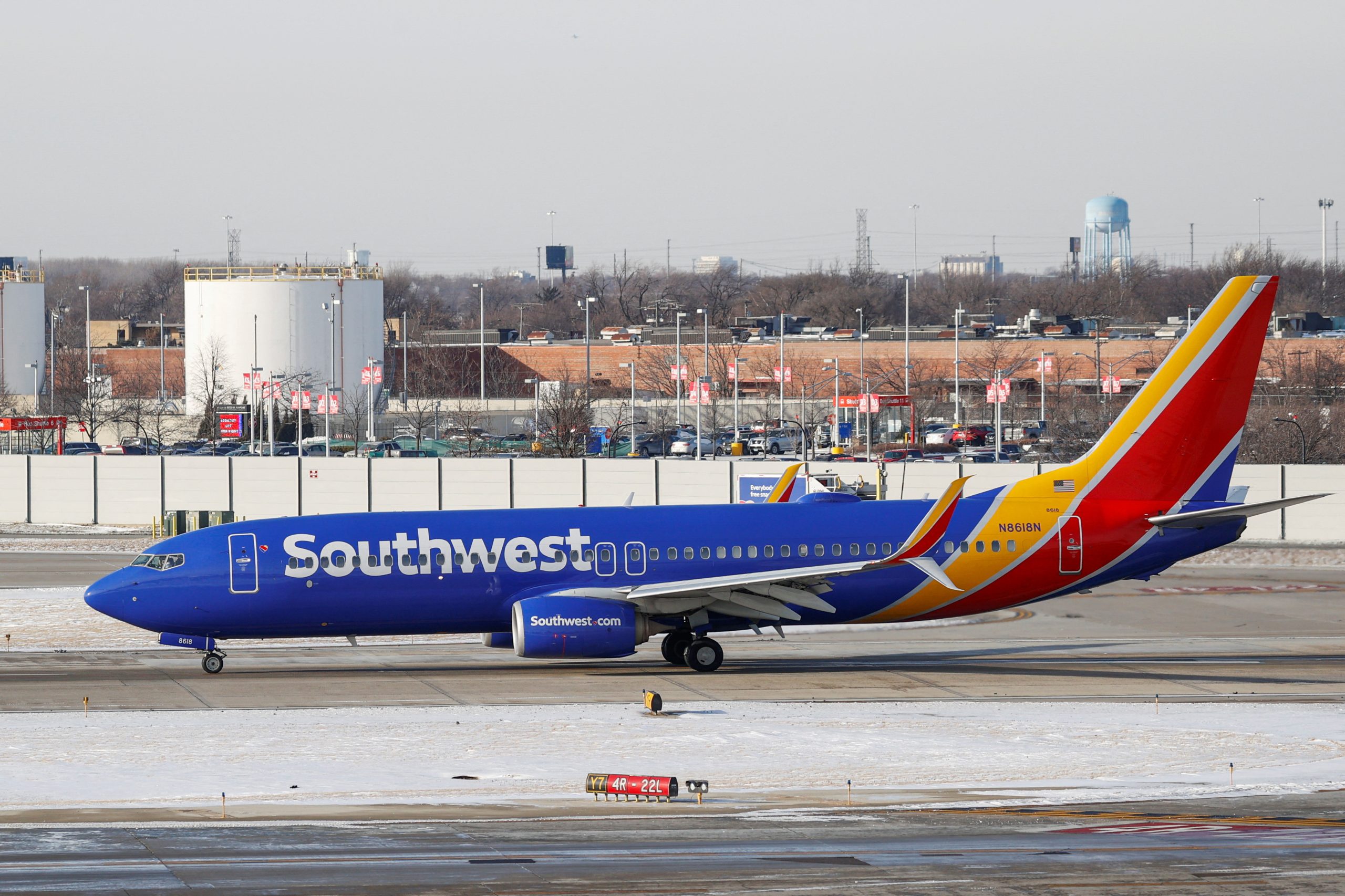
[elfsight_social_share_buttons id=”1″]
Southwest Airlines Co on Thursday warned of a loss in the current quarter as passengers shunned the carrier in the immediate aftermath of an operational meltdown that forced it to scrap thousands of flights between Christmas and New Year’s Eve.
The forecast heaps more pain on the largest U.S. domestic carrier, which is facing a lawsuit from shareholders and regulatory scrutiny over its flight scheduling and handling of more than 16,700 cancellations that disrupted travel plans for about 2 million customers during a busy holiday season.
Analysts on average had expected Southwest to post a profit of 19 cents a share in the first quarter, Refinitiv IBES data shows.
On an earnings call, under-fire Chief Executive Bob Jordan again apologized for the mass cancellations and reiterated that the carrier was looking at all options to prevent a repeat.
“We will do everything to double down to make sure that this does not happen again,” said Jordan. “It’s critical.”
The company’s shares were down about 4.2% at $35.33 in afternoon trading.
Southwest, which also reported a loss in the fourth quarter, estimates a revenue hit of between $300 million and $350 million in the first quarter.
The Dallas-based carrier also expects non-fuel operating costs in the March quarter to be higher than its previous estimate, in part due to extra pay it has offered to workers for dealing with the December meltdown.
It is under pressure from investors to win over customers. To mollify them, the airline has awarded customers affected by the meltdown 25,000 Rapid Rewards points, equivalent to more than $300, as a goodwill gesture.
Jordan said 25% of the customers, who were issued the reward points, have already made bookings with the airline for future travel.
The company expects the impact of the meltdown to fade in March, resulting in a “solid” profit this year.
Analysts and unions have blamed Southwest‘s dated crew scheduling technology for its struggle to recover from a storm last month.
But Jordan said the technology worked as designed, attributing the meltdown to the “historic” storm.
Southwest has hired consultancy Oliver Wyman to investigate the disruption and is working with General Electric Co to upgrade its crew scheduling systems.
The company’s board has set up a new Operations Review Committee to oversee management following the meltdown.
In the interim, the company has implemented measures to reduce the risk of a similar disruption. For example, it has increased the number of crew schedulers, created an early indicator dashboard to closely monitor operational health, and is implementing a new crew scheduling phone system.
Jordan said the company is also buying more engine covers for extremely cold weather and is looking at fuel mixes for ground equipment during subzero temperatures.
“The urgency is across the board,” he said.
TECH INVESTMENTS
Southwest expects to spend about $1.3 billion this year on technology investments, upgrades, and system maintenance.
Christopher Raite, a senior analyst at research firm Third Bridge, said the carrier has the balance sheet to fund the investments, but it needs to execute its plans.
He said while a recessionary economic environment tends to make companies de-prioritize spending on technology, Southwest cannot afford to do that.
The airline retained its capacity growth forecast for the first quarter, but revised upward estimates for the full year.
The meltdown led to an adjusted loss of 38 cents a share in the quarter through December, robbing it of the gains from booming holiday travel demand.
Rival carriers United Airlines and Delta Air Lines American Airlines have all reported higher-than-expected earnings for the quarter.
Southwest said it suffered a revenue hit of $410 million and saw about a $390 million jump in operating expenses last quarter due to the flight cancellations.
Copyright 2023 Thomson/Reuters
